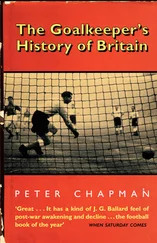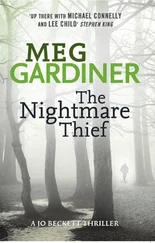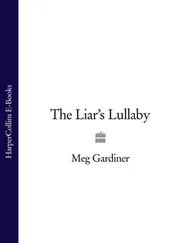The case was a complicated one, but again Hatry’s story embodied another concern — or in this case a suggested panacea — of the times: rationalisation. Almost Edwardian in his spending habits, at various times he had owned racehorses, one of which, Furious, won the Lincolnshire Handicap at wondrously long odds; a yacht which cost £15,000 (almost £700,000 in today’s money) a year to keep afloat; and a magnificent house off Park Lane which his wife described as ‘a palace in miniature’, but which the Observer would later sneer at as ‘a palazzo in Mayfair with its classical swimming bath above and its sham Tudor cocktail bar below’. Hatry had built and lost his various fortunes largely by consolidating businesses, which was exactly what many economists and industrial pundits were recommending as the way forward for outdated, undercapitalised British industries. While Jute Industries, which he formed in 1920, was a success, there was little ‘strategic logic or managerial vigour’ in such creations as British Glass Industries or Amalgamated Industrials, ‘a hodgepodge of cotton spinning, shipbuilding, and pig farming’, according to his biographer.
However, Hatry sold the London department stores (including Swan & Edgar) he had bought and combined into the Drapery and General Investment Trust to Debenhams at a handsome profit, and merged the majority of London’s private bus companies, before selling them to London General Omnibus Co., which would eventually become the nucleus of London Transport. He also financed rather less successful ventures, such as the Photomaton Parent Corporation (which operated photographic booths) and the Associated Automatic Machine Corporation (operating vending machines, mainly on railway platforms), both of which perhaps spoke more to his weakness for gizmos than his financial acumen, and leaked funds.
Nevertheless, by 1928 Hatry appeared to be successfully juggling his activities as a proto-asset-stripper under his umbrella company Austin Friars Trust, ‘a £300,000 finance house which was to be the linchpin of his later enterprises and the central company in a complicated network of interrelated investment and industrial enterprises’, buying companies, amalgamating them, liquidating then reconstructing them under a new name. At his trial, however, the liquidator, Sir Gilbert Garnsey, alleged that the whole group had been insolvent from the very start in May 1927.
Within that cavernous enterprise one particularly successful amalgamation was Allied Ironfounders, a combine of light castings manufacturers, and this gave Hatry the idea of pulling off a similar feat in the ailing steel industry. In April 1929 he acquired control of the United Steel Companies, but the next month the general election returned a Labour government. ‘This is ruination,’ Hatry lamented to Hubert Meredith of the Daily Mail . ‘How can I possibly carry through my steel scheme now?’ And indeed, in the bear market that followed what might have been anticipated as the beginning of a full-frontal attack on capitalism, Hatry saw the value of his securities take a severe hammering.
To achieve his ‘steel scheme’ he needed a large amount of money — probably nearly £8 million — but he had a shortfall, and one that he was finding increasingly difficult to bridge, not least because Montagu Norman, the Governor of the Bank of England, was implacably opposed to both Hatry’s scheme and its promoter. ‘I say he shd stand aside as long as Hatry controls,’ Norman advised a director of the merchant bank Morgan Grenfell, which had been approached for a loan.
To raise the £900,000 (more than £40 million in today’s currency) necessary to float Steel Industries of Great Britain Inc., Hatry, at the suggestion of one of his directors, an Italian called John Gialdini, tipped from dextrous dealings and sailing close to the wind into illegality. A few years earlier he had audaciously managed to break into the lucrative corporations loans business, and by the end of 1928 he had cornered 90 per cent of the market. Now, in a manoeuvre ‘intended to rob Peter to pay for Paul and to reimburse Peter from the profits of selling Paul’ he agreed to forge corporation scrip certificates (receipts and contracts) for three of the municipalities with which he had dealings, Gloucester, Swindon and Wakefield, thereby providing security for further loans from the banks until the steel combine was floated, whereupon the forged certificates could be redeemed.
It didn’t work. The City’s confidence in Hatry, already ebbing, went into free fall, partly as a result of the excessive number of scrip certificates that seemed to be in circulation, and the Stock Exchange suspended dealings in Austin Friars Trust. Gialdini had already done a runner back to Italy when on 19 September 1929 Hatry, who was by now being investigated by Sir Gilbert Garnsey of Price Waterhouse on behalf of worried creditors, and his three other directors confessed to the Chairman of his companies, the 16th Marquess of Winchester, in the Charing Cross Hotel, that there were ‘irregularities’. The four then piled into a taxi to tell Garnsey, ‘We want to make a complete statement before the investigation is begun.’ They subsequently made a formal confession to the Director of Public Prosecutions, Sir Archibald Bodkin, in which the forty-year-old Hatry took full responsibility himself for the misdemeanours. Garnsey revealed that the total liability of Hatry’s companies was in the region of £21 million, with Austin Friars Trust responsible for £15 million. The City took the news badly. ‘This Hatry affair has besmirched us all, especially in the eyes of foreigners, which we can ill afford,’ wrote the Governor of the Bank of England. In his diary he laconically gave his verdict: ‘I do not favour bail for Hatry.’
Hatry did not get bail, nor did his young associates. When the case came to trial on 20 January 1930 it took the prosecution a full four days to present the charges, so complicated were the details, so breathtaking the sums of money involved. Hatry was defended by Norman Birkett, KC, but since he and his fellow defendants changed their pleas to guilty of all charges, all Birkett could plead was mitigation. All the lawyer’s legendary powers of persuasion (which brought tears to the eyes of the accused) were to no avail. The judge failed to see the difference between Hatry’s intention to redeem his fraudulent issue out of the large profits he anticipated making when his ambitious steel combine was floated and ‘the threadbare plea of every clerk or servant who robs his master and says that he hoped to repay the money before his crime was discovered by backing a winner. Except that your crime was on a large scale.’ Mr Justice Avory sentenced Hatry to a draconian fourteen years of penal servitude, since ‘You stand convicted on your own confession of the most appalling frauds that have ever disfigured the commercial reputation of this country.’ The ‘bird-like’ Hatry ‘visibly reeled’. His son bitterly concluded that the case had been prejudged in the name of a nation that was itself reeling from the effects of the world slump, but on appeal two months later Hatry’s sentence was effectively increased by the two months that had elapsed between trial and appeal.
The verdict of some in the City was similar to that of the judge. Hatry’s Chairman, the Marquess of Winchester, who had lost money and reputation in the ‘Hatry crash’, had once thought that Hatry was ‘an example of the alert business brain having an unusually quick perception of any proposition, a marvellous gift for shifting the intricacies, a power of putting his case with a clarity of expression rarely found apart from legal training, coupled with an apparent frankness which amounted to a charm of manner’. He now revised his opinion, and decided that in fact what Hatry possessed was ‘dangerous optimism coupled with inordinate conceit … his brain was honeycombed with crevasses into which unpleasant facts were allowed to slip and there he permitted them to remain in the hope that the glacier would never reveal its secrets’. The Times spoke of ‘a rogue … a signalman who deliberately tampers with the signal’.
Читать дальше












